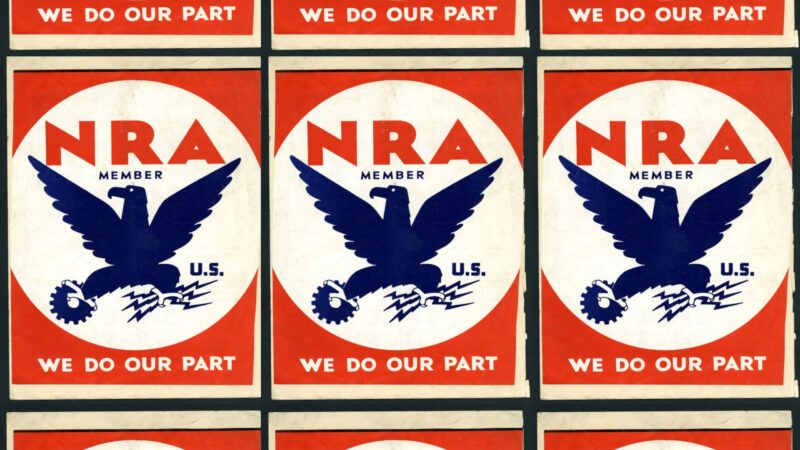Federal 'Buy American' Rules Cost Over $100,000 Per Job Created
Eliminate the domestic content requirements of the Buy American Act, don't expand them.

In a rare instance of agreement, Republicans and Democrats have converged on the idea that "Buy American" provisions should be expanded in order to increase American jobs. But a new paper finds that existing federal rules impose high costs on consumers.
A September 2024 working paper published by the National Bureau for Economic Research (NBER) found the Buy American Act has created more than 50,000 jobs. Just one catch: Each one of those jobs costs the economy more than $100,000.
The Buy American Act of 1933 (BAA) is a New-Deal–era law that prohibits the federal government from purchasing foreign-made goods. The BAA's mandate comprises two principal requirements: first, goods must be manufactured in the U.S.; second, at least 50 percent of the cost of inputs for final goods must be domestic.
The NBER paper found that removing the BAA's provisions would eliminate 100,000 manufacturing jobs, each of which costs the economy $130,000. Nonetheless, both the Trump and Biden administrations have expanded the BAA.
In a July 2019 executive order, the Trump administration directed the Federal Acquisition Regulatory Council (FAR Council) to "most effectively carry out the goals of the Buy American Act." Specifically, the executive order proposed increasing the domestic content requirement from 50 percent to 95 percent for iron and steel products, and to 55 percent for all other end products. In January 2021, the BAA content requirements were amended accordingly.
The Biden administration pushed further. In January 2021, President Joe Biden issued an executive order directing the FAR Council to "increase the numerical threshold for domestic content requirements for end products and construction materials." In March 2022, the Far Council published its final rule increasing the domestic content threshold from 55 percent to 60 percent, to be increased to 65 percent in 2024 and 75 percent in 2029.
The bipartisan expansion of the BAA's provisions is predicted to be even more costly. The authors of the paper calculate that the BAA's 2029 requirements will lower "the aggregate welfare in the U.S. by 0.68 percent," costing each consumer about $50 in the form of increased prices.
The economists say "they find scant evidence of the use of Buy American rules as an effective industrial policy." The BAA does not promote economic growth; it's a costly "employment measure" that benefits a few by robbing all.


Show Comments (53)